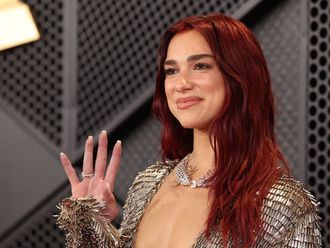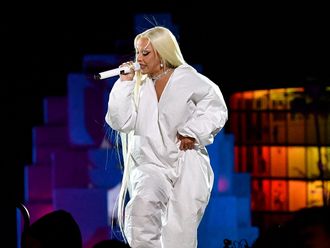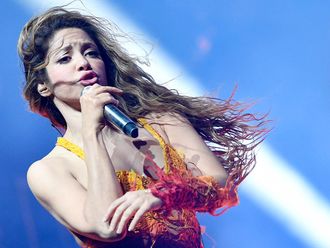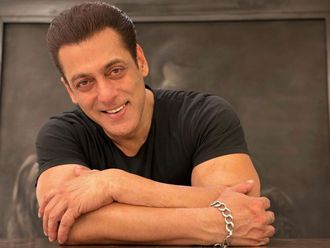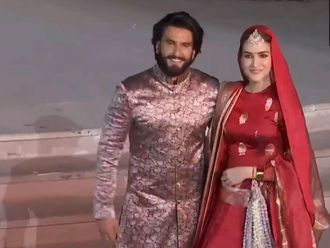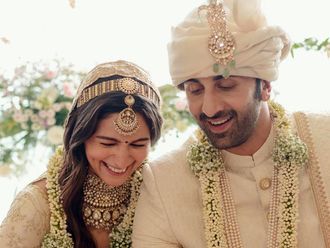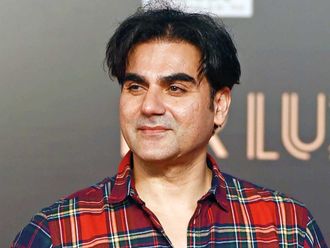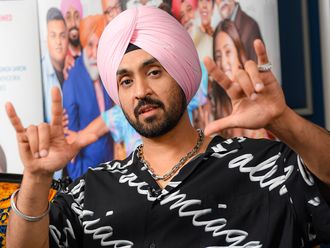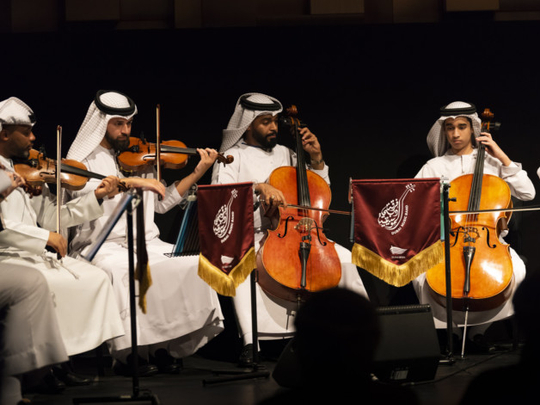
It’s a dance of two rhythms bathed in flecks of cream and gold. The insistent strum of Middle Eastern instruments and the gentle swish of western melodies. Notes begin to undulate on stage, the Dubai Opera is thrumming with song; Dubai Music Band is jamming.
Fast-forward to three months later. The troupe that debuted to a glowing response in March now returns on June 30 with a score that layers local flavours with old favourites; it aims to give you a taste of the Tones of a Golden Time.
Eid Al Faraj, who has been deputed to choose, compose and supervise the band, spoke to Gulf News tabloid! ahead of the show about their past and future performances, and why the repertoire of this ensemble is sure to be liked.
For one thing, in true Dubai-style, it’s a field of firsts. The audience can expect “a variety of music pieces, along with the introduction of Emirati voices. [They] will be singing local and classic Arabic songs for the first time,” says Al Faraj. Saturday’s performance will feature special guest Emirati voices performing popular Arab and Gulf tunes. “You will be treated to a collection of songs originally made famous by artists including Jaber Jasim, Mohammad Abdo, Ghrid Al Shati, Ahmad Kassem, [and] Mohammad Abdel Wahab,” he explains.
The group kicked off in March with a limited-showing two-part debut. The first, Journey of the Gulf Tune, featured both original and traditional Gulf compositions — and some notes by Al Faraj. Part two, Arab Musical Varieties, skimmed through the portfolios of popular Arab artists including Ahmad Taha and Abdul Aziz Al Madani.
For another, it’s a band that weaved in and out of the archives of various eras before settling on the ‘perfect’ one.
“One of the goals of Dubai Music Band and its approach is to present local and classic Arabic works as they were originally performed,” explains Al Faraj. “This music is still longed for by lovers of the sixties and over, which is always referred to as the music and songs of the golden times.”
Then there’s the not-so-hidden agenda, to introduce the classics to a younger audience. “This [show] is also an opportunity for the current generation to get acquainted with the style of music where perhaps it may have become saturated with modern electronic music modifying this style’s true originality and creativity,” he reveals.
Jasper Hope, Chief Executive of Dubai Opera, says: “This is [a] wonderful chance to hear young and talented local musicians performing their first public show and featuring classic songs and pieces by some of the region’s best-loved local composers and artists.”
The band, outfitted in kanduras and armed with bows, is a harmonious bunch. But they only made it to group level after auditions. Gruelling calls that tested reliability and endurance as much as they did artistic talent. Then came the days of professional guidance. Veteran Arab stars played muse and teacher to the entrants, getting them ready for the big days ahead.
The work seemed worth it.
The March serving tickled the auditory taste buds in the city; this time around; however, it has a more ambitious goal. “It was a beautiful opening ceremony,” reminisces Al Faraj about their first run. “I consider it a responsibility where we must work harder to strengthen the band and continue to communicate with the public our specialisation,” he adds.
But when asked about the challenges the band faced in coming together, Al Faraj, who is the first Emirati composer, skips over the questions, veering instead towards how the set list of each gig is chosen. “Through consultation among the members of Dubai Music Band, we select the works,” he says. “Each concert will have a different set list,” he insists.
From the comfort of the Dubai Opera platform to shores far away, the aim is to reach ears worldwide. “Our plan is to have international tours and CDs in the near future,” explains Al Faraj.
But let’s begin with a perfect springboard for firsts: Dubai. Let’s begin with the intermingling of golden licks of music and light.
——————————————
Don’t miss it!
Tickets for the June 30 performance of Tones of a Golden Time at Dubai Opera start at Dh100.
——————————————
Legacy of Arab music
If you think of an area in the context of a particular time, subtle notes will begin to reveal themselves. The early ‘golden era’ of Arab music, for instance, is underscored by a love for king and country, of legacy and heritage. Cultural mores, historical references, spoken words dressed in melodic ensembles are all key to its appreciation. Of the well-known musicians whose tunes will reverberate through the floorboards of the Dubai Opera this weekend, here are a few standouts.
Jaber Jasim
One of the most famous singers of the UAE, the late Jaber Jasim sang from a place of love and loyalty. The Abu Dhabi-bred musician took the torch of Emirati storytelling forward; poetry and music were blended together to create a heart-warming sound.
Mohammad Abdo
He has known fame as the “The Artist of Arabs”, but for Saudi Arabia-born Abdo singing is more of a calling.
The 69-year-old who started life as the son of a fisherman-turned-bricklayer went on to take the Arab world by storm. His brand of singing tugged on the sleeves of a thousand years of heritage; his Chaabyat albums document old styles of music-making.
Mohammad Abdel Wahab
While Wahab paid homage to his country with patriotic songs, he was a bit of a revolutionary. The Egyptian musician infused western rhythms and unusual oud playing techniques to create a new sound. And in doing so, he laid the groundwork for a new era of Egyptian music.
One of Wahab’s most well-known contributions is ‘Ishy Bilady’ — yes, that’s the UAE’s national anthem. Let the music begin.



